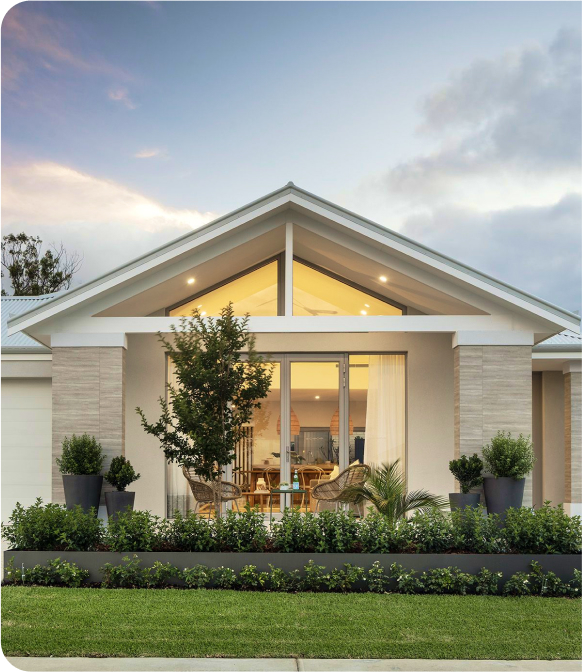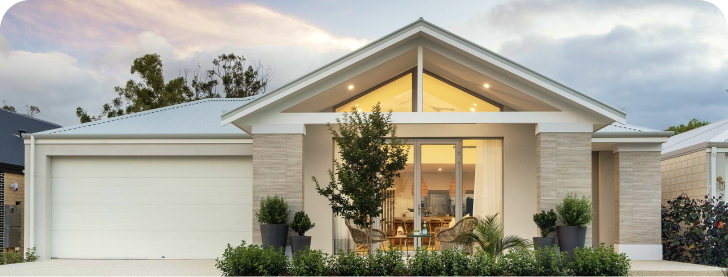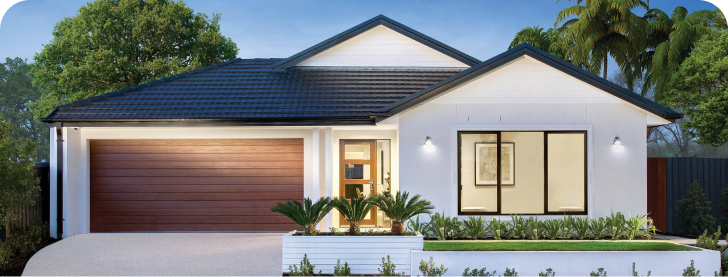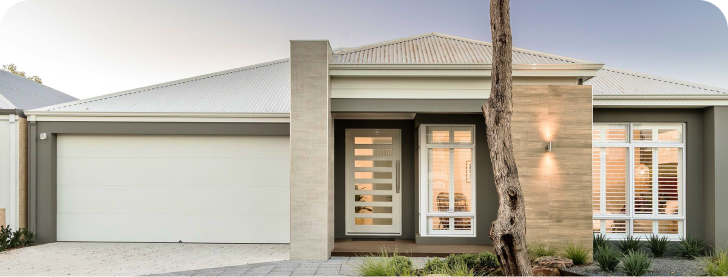
Accessory dwelling units have become a widespread rental housing option among property owners who have some extra space on the same property as their primary dwelling. Accessory dwelling units (ADUs) are considered an affordable housing option, as they are smaller than any primary residence and require less maintenance.
There are plenty of ADU rules that regulate both the ADU construction and the renting procedure. ADU ordinances are usually issued by the local governments. However, there are some state ADU law requirements as well. As these accessory buildings can only appear lawfully if building permits are obtained from government officials by a property owner, sometimes, these structures are called in-law units.
Learning all the ADU laws at once can be challenging and overwhelming. That is why many homeowners who wish to expand housing options on their lot go to law specialists beforehand. Still, it is important to at least familiarize yourself with the existing ADU legislation. In this article, we will talk about the most common legal regulations for accessory dwelling units.
Before building an accessory dwelling unit, one should create plans that comply with state laws and local ADU regulations. ADU ordinance might vary from one area to another; however, in general, the requirements are pretty similar. Accessory structures cannot be assembled unless construction permits from local governments are received.
A future owner of an accessory dwelling unit should keep in mind the following ADU ordinances and zoning rules:
ADU laws get reconsidered and changed every once in a while. Before starting the ADU construction, check for any new local ordinance that can limit you from getting a building permit on time. If done properly, ADU development will help you to turn an existing space into something more functional and beneficial to you and your family members.
First of all, to construct accessory dwelling units, one must receive approval from the city council. According to local jurisdictions, the plans will be reviewed in a 60-day period. It makes it easier for those who want to build accessory dwellings, as previously, the application process took longer.
When thinking about your ADU financing plan, keep in mind that payment of additional fees might be needed if your ADU plan doesn't get approved on the first try. Any additional changes and re-applications can be costly. To avoid that, ADU construction professionals can be hired.
Second of all, the construction of additional dwelling units should be approved by the Homeowner's Associations as well. Thus, not only local agencies but also neighborhood supervisors might impact the process of construction of granny flats.
What is more, if your primary residence parcel is located in a historic district, you might need to get additional approvals. One can check state law and local regulations to see what regulations on this matter exist in the area.
To ensure the safety of affordable housing, some other rules apply as well. For example, if an existing structure on the single-family lot is obliged to have fire sprinklers, an ADU must have them as well. The same applies to multifamily dwellings, in which fire safety precautions are obligatory.
A separate entrance is another requirement that homeowners must comply with. Even if the ADU is attached to the main house, it should have its own entrance. Also, a parking space is required unless there are no other regulations specific to certain zoning districts.
As already mentioned, there are owner occupancy requirements in most states as well. They serve to minimize the housing crisis' effects. Therefore, any single-family and multifamily dwelling units require owner occupancy in the first place.
Before inviting a tenant to rent your major new infrastructure, a proper screening procedure must be done. Although the content of it usually depends on the landlord's personal requirements, there are some common practices as well.
For instance, while checking a potential tenant, an ADU owner can ask for the following:
One of the most important things to keep in mind is that you shouldn't discriminate against future tenants by any personal characteristics, like ethnicity, gender, religion, or age. You cannot specify in your ADU listing what kind of tenant you want based on these features, as it would be considered a violation of federal law.
In some areas, there are regulations regarding the period of renting an ADU out. Although short-term rentals are often more beneficial for homeowners, they have quite a negative effect on the housing situation in existing neighborhoods. Hence, many local ordinances have set limitations regarding the minimum number of days per year when an ADU has to be occupied.
Thus, if you are planning to have tenants in a converted existing garage or a newly-built unit, check your local regulations beforehand. Some areas require that homeowners rent their ADUs for at least 30 days, while others might set the limit to up to 90 days per year.
For both single-family and multifamily properties, local rent and eviction regulations apply. These rules state the procedure according to which the government regulates the process of renting out an ADU. Here, the price limitations might be specified, as well as the rental period.
Moreover, in different areas, various eviction regulations are specified. To make the procedure acceptable for both tenants and landlords, specific reasons for eviction are defined. In order to be able to protect your rights, an ADU lease contract must be signed in advance. This contract should include all the agreements and rules for both sides to comply with for the period of renting.
As ADUs are primarily constructed for living in them, it is no wonder that repairs and renovations might be needed at some point. Although there are no specific requirements regarding the repairing process, still, there are some recommendations and rules connected to maintenance.
For example, homeowners of single-family and multi-family housing should provide necessary living space, including bathroom, kitchen, and bedroom zones. For attached ADUs, bathroom facilities can be shared with the primary dwelling. However, while such an option might be comfortable if you have family members living in your ADU, it can be inconvenient to share this space with tenants.
Speaking of facilities, you need no separate utility connections for ADUs. All the systems can be connected to the primary housing. Timely repair of utility connections must be done if needed, in order to avoid overconsumption of resources and excessive bill payments.
Unlike the main housing unit, you do not need insurance for your ADU. There are no law requirements for that, leaving the decision entirely up to the homeowner.
However, if you have taken a mortgage or any other kind of financial support for the construction of your ADU, your lender might insist on getting the unit insured. This helps compensate for any damage done to your property during the process of paying the loan out.
When constructing an ADU, many homeowners worry about their property taxes getting increased. In general, a new secondary unit on your lot might increase your yearly tax payment by around 1% of the unit's construction cost. Here lies another reason why you should contact specialists before making the final decisions on your ADU.
A lawyer who specializes in taxes can consult you on the matter of tax rise for the addition to your property. Keep in mind that different ADU plans might result in different price changes. That is why every detail planned in the initial stages matters.
Another important point is that taxes for your primary unit will not be reassessed. The tax cost of ADU simply adds to the existing one without any need for examination of the main house.
While an increase in taxes might scare away some homeowners, you should always remember that ADUs are fantastic investments. They increase the value of the property on the housing market, making the unit more beneficial to you in case you ever decide to sell your main home. Pay attention that ADUs cannot be sold separately from the primary dwelling.

Although there are some regulations within the Americans with Disabilities Act (ADA), they do not apply to personal properties, like main or accessory dwelling units. Therefore, you are not obliged to include any accessibility features in your ADU planning. However, if you personally wish to make your ADU more comfortable for disabled loved ones or potential renters, there are several suggestions for that.
The obvious solution that comes to the minds of the majority of homeowners is creating wider doorways for better wheelchair and cane access. Indeed, widening pathways can make a big difference and should not be neglected, even in the limited space that ADUs have. In addition, think about eliminating all the thresholds, as they might prevent people with health problems from moving freely.
Also, lowering the level of placement for switches, doorknobs, and even cabinets and shelves can improve accessibility. For easier control of the environment, remotes for air conditioning, lights, and blinds or curtains should be available. When it comes to implementing technologies, smart home devices can be of great help to disabled or health-impaired residents as well.
Some other home features to consider include lighter doors with easy-to-grab door handles. Moreover, non-slippery surfaces should be of high priority, especially if an ADU is designed for the elderly. As people of age tend to get worse eyesight over the years, it is better to opt for furniture and appliances without any pattern. It will help them find any needed objects easily.
Although accessory dwelling units are a lot easier to construct than primary residences, there are still many regulations and recommendations regarding the design, renting, and maintenance of the property. In order for you to get the best out of your ADU, it is better to consult with specialists who focus on the entire process, from planning and receiving permits to constructing the unit itself. Once you have figured out all the nuances, you can expect successful ADU building and future rental income.
As of now, local governments will accept applications for the construction of ADUs within 60 days. Also, the maximum height of an ADU can now reach up to 25 feet if it is an attached one, and no other zoning or local rules apply. For ADUs that are smaller than 800 square feet, the front yard setback is no longer needed.
Accessory dwelling units can be a great investment, especially if constructed properly. First of all, they can give you an additional source of income if you rent it out. Second of all, if you someday decide to sell your property, an ADU can add to the value of it, making it more expensive on the housing market.
There are detached, attached, and junior accessory dwelling units. The majority of ADUs cannot be taller than 16 feet. ADUs must comply with local zoning regulations and have setbacks of at least four feet from the sides and rear property line. ADUs are lawful if a building permit from local government officials is in place.











